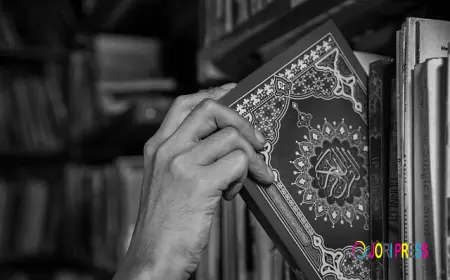What Uganda’s all-male presidential race tells us about gender equitable politics



It is an electoral season in Uganda. It is also a season of critical reflection, learning and rethinking strategies for attaining an equitable nation.
What is worth noting is that out of the eight presidential aspirants, none is female. Why didn’t women make it to the contest, and what could we learn from this exclusive male affair of politics?
Affirmative action has long been regarded as a progressive tool in the struggle for equality. For the long time that women’s movements have been advocating for inclusion and opportunities for representation in parliaments, workplaces and educational institutions, affirmative action has symbolized a structural intervention into patriarchal systems.
Yet contemporary feminist discourse seems to overemphasize “affirmative action” as the singular marker of progress. This narrowing of priorities raises critical concerns about whether feminism has traded broader justice for numerical inclusion.
While affirmative action remains significant, overemphasis on it as a lone strategy tends to obscure other critical injustices facing women, especially in African contexts.
Drawing insights from Sylvia Tamale’s When Hens Begin To Crow: Gender and Parliamentary Politics in Uganda (1999) and other scholarly critiques, feminism must move beyond quotas especially in politics and education to reclaim a holistic pursuit of gender justice.
Affirmative action and the politics of representation Affirmative action emerged as a corrective measure to centuries of exclusion of women from political, social, and economic spheres.
Its central aim was to open spheres previously closed to women, particularly in governance, education and formal employment. In Uganda, the introduction of affirmative action through gender quotas was celebrated as a victory for women.
Quotas indeed increased numerical presence of women in parliament, corporations and academia. This is evident as history documents how Uganda women’s entry into parliament through reserved seats represented a breakthrough in dismantling patriarchal structures.
Yet as some feminist scholars have indicated, representation alone does not dismantle patriarchal structures. The presence of women in decision-making bodies does not automatically guarantee pro-women policies, nor does it necessarily address the lived realities of intersecting marginalization of women.
The sole focus on “counting women” often tends to reduce feminist struggles to tokenistic victories, leaving systematic inequalities intact. Contemporary feminist discourse, especially within the elite spaces, often celebrates the symbolic achievement of women in high offices while neglecting the pressing injustices that disproportionately affect the poor and rural women.
Issues such as domestic violence, maternal mortality, sexual harassment in formal and informal workspaces, unequal access to land and discriminatory cultural practices remain pervasive. By focusing primarily on affirmative action, feminist struggles risk reproducing class-based inequalities, privileging elite women who benefit from quotas while sidelining the struggles of the majority.
Meaningful gender justice requires attention to these intersecting oppressions. While Uganda boasts of high numbers of women in political office due to quota systems, women’s lived realities ranging from domestic violence to unequal access to healthcare and economic resources remain largely unchanged.
Has the affirmative action initiative which offered women a seat on the table equally pursued the agenda of shifting of the menu of priorities in political institutions through redistributing real power?
Talking about economic marginalization, women remain disproportionately represented in informal and precarious labour with limited access to land ownership and credit facilities. Coupled with cultural and social inequalities, patriarchal cultural norms continue to police women’s sexuality, mobility and autonomy.
As early as the 1940s, women protested lack of rights to inherit marital property, and these instances still happen today. Affirmative action is necessary but an insufficient tool It is very essential to acknowledge that affirmative action is not inherently flawed.
It has opened doors and challenged the masculinist monopoly of power. However, its utility lies in being one among many strategies. How do we re-imagine affirmative action as one of the many integrated interventions to transform rooted unequal gender power relations?
It is important to understand the limit of affirmative action especially the acknowledgement that as a strategy, it still operates within the same patriarchal frameworks it is meant to challenge.
For example, in Uganda, the parliamentary quotas have increased the number of women in politics, yet patriarchal power dynamics continue to marginalize them. Many female leaders find themselves co-opted into existing political structures, unable or unwilling to challenge systematic injustices.
When affirmative action is reduced to a numbers game, it risks becoming depoliticized. When efforts are invested in quantifiable targets in parliament, boardrooms and leadership without addressing interconnected deeper power relations, structural inequalities and cultural barriers that create gender justice, these efforts risk losing the political edge and transformative purpose.
Therefore, there is a need to rethink feminist struggles and priorities for broader gender justice by broadening the struggle beyond quotas and representation. First, feminists must re-center everyday injustices that affect the majority of women, land rights, access to healthcare, freedom from gender-based violence and economic justice.
Second, movements must recognize the intersectionality of oppression, acknowledging that women’s struggles differ across class, ethnicity, sexuality and geography.
Third, feminist advocacy should combine institutional reforms with grassroots mobilization to ensure that change is not just symbolic but transformative. I believe that gender justice requires a re-imagination of power itself, not just inclusion within existing hierarchies.
We need to move beyond looking at affirmative action as the ‘sole saviour’ to deliver a female president in a historically patriarchal and capitalist state.
The writer is a student of Gender Studies, Makerere University.
What's Your Reaction?
 Like
0
Like
0
 Dislike
0
Dislike
0
 Love
0
Love
0
 Funny
0
Funny
0
 Angry
0
Angry
0
 Sad
0
Sad
0
 Wow
0
Wow
0
















































